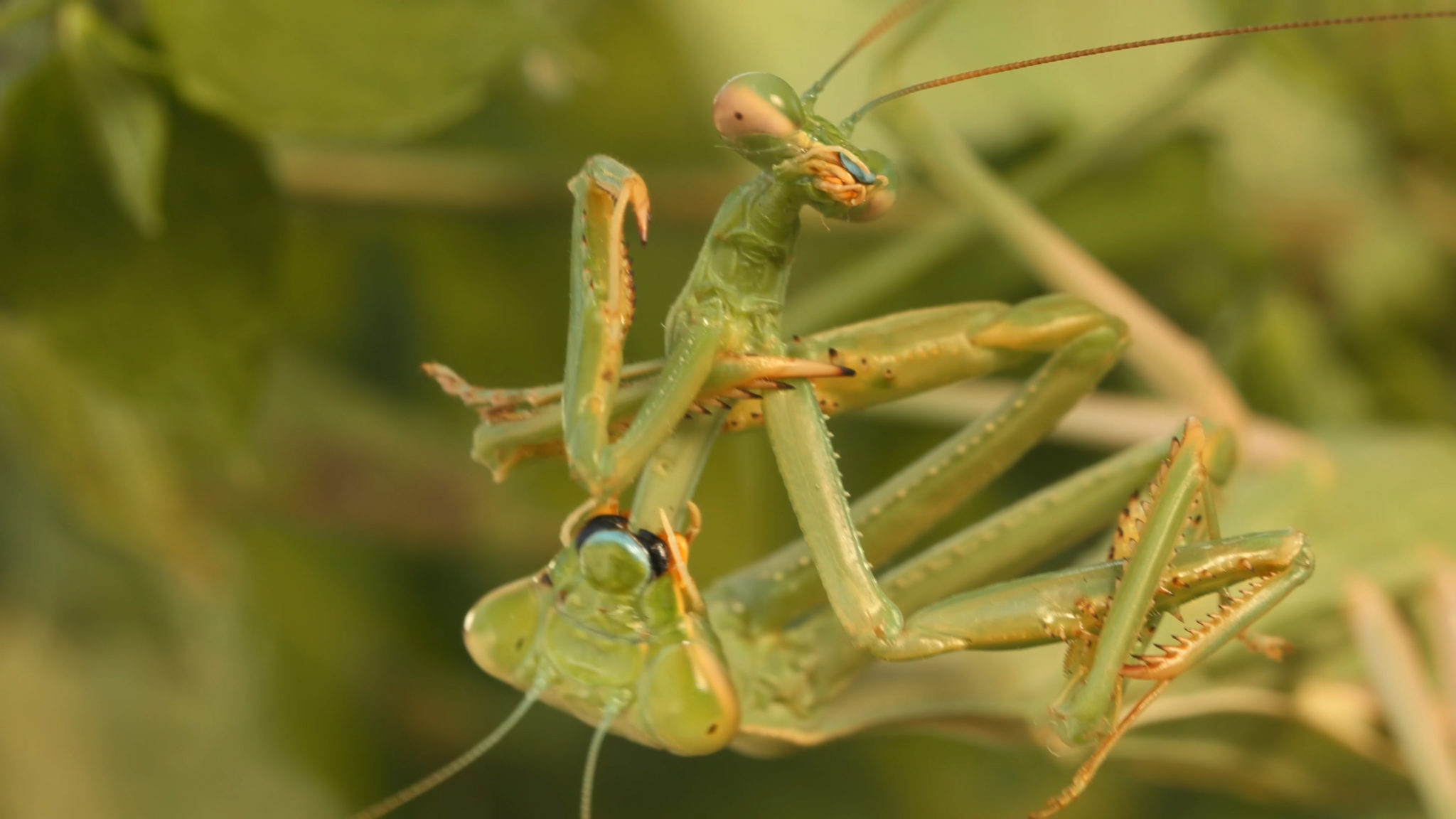Peculiar Study Shows Why Some Mantis Males Keep Their Heads After Sex

Female mantises have a reputation for sexual cannibalism, meaning that they literally consume their partners’ bodies before, during, or after intercourse.
However, unlike many other male mantises, the male springbok mantis often escapes the gruesome death by harshly wrestling and even severely damaging the female during the process.
A new study showed that some springboks managed to mate and evade their death by pinning down the female.
On the other hand, female mantises that won the match always consumed the male, the same study showed.
“For praying mantises, it’s a game of Russian roulette. In the springbok mantis, males have found a way to beat the odds and secure matings in the face of cannibalistic annihilation,” said Nathan Burke, the study’s lead researcher, a member of the biological sciences department of the University of Auckland in New Zealand.
The springbok mantis (scientifically known as Miomantis caffra) was unintentionally introduced to New Zealand from South Africa over 40 years ago. Since then, it slowly became a common resident of the gardens there, according to Burke.
Though most mantises are renowned for sexual cannibalism, the female springbok mantis is an absolute unit, as more than 60% of its sexual encounters lead to devoured males, the scientist said.
The experiment was conducted on 52 pairs of mantises, and the results were surprising. The females won over a third of the wrestling matches, pinning down and eating nine out of the 26 males that initiated a contact.
It turns out that the males often survive solely by pinning down their partners and stabbing them with their claws they typically use for hunting.
0 comments